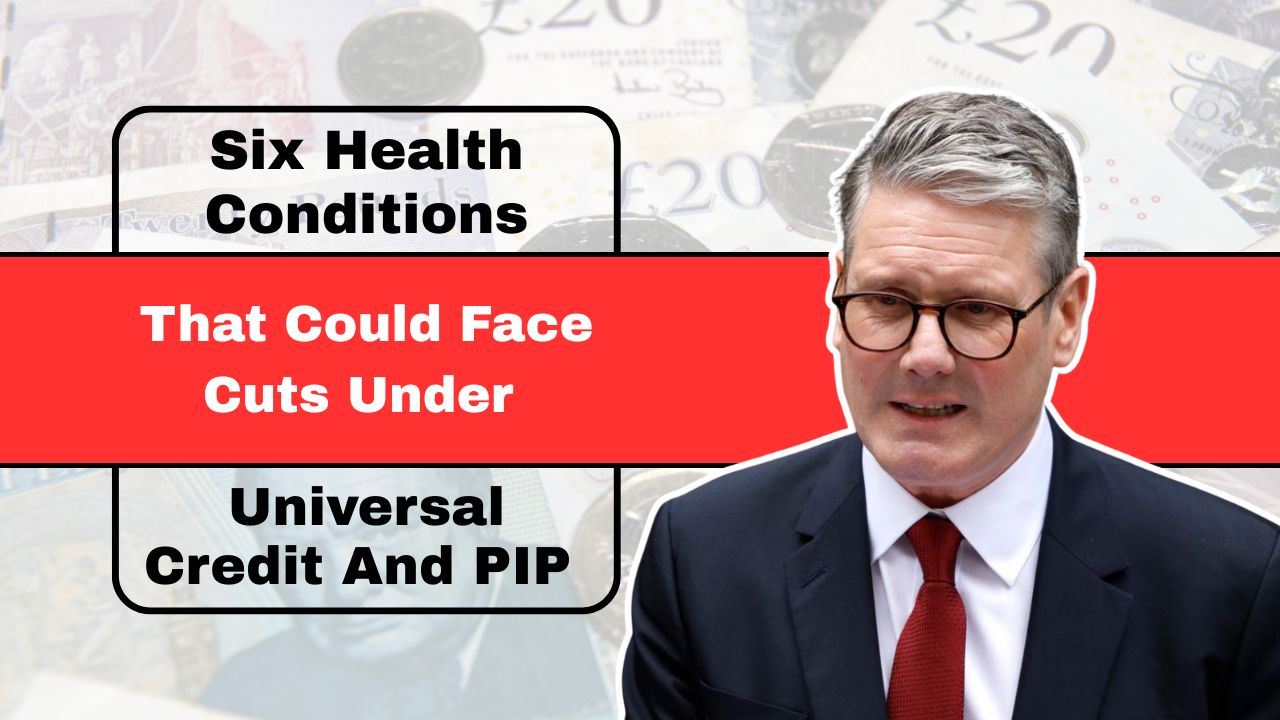As the UK government moves ahead with its welfare reform agenda, campaigners and disability rights organisations have raised the alarm over changes that could significantly reduce financial support for thousands of disabled individuals.
A specific concern surrounds new Universal Credit and Personal Independence Payment (PIP) claimants living with long-term health conditions.
Under the proposed reforms, many could lose access to the health element of Universal Credit—worth up to £422.37 per month—unless they meet a new “severe conditions criteria.”
With six major health conditions identified as being particularly vulnerable, the impact could be severe and far-reaching.
Why the Cuts Are Happening
The Labour-led Welfare Reform Bill is designed to streamline the benefits system, reduce overall welfare spending, and encourage employment.
However, these reforms risk creating a two-tier system—where new claimants are treated differently than those already on benefits.
Currently:
- Existing claimants will not be affected by the change.
- New claimants must meet stricter criteria to receive the additional health element in Universal Credit.
- Those who don’t meet this criteria will receive a reduced payment of £217.26, compared to £422.37 currently offered for those deemed unfit to work due to a disability or long-term health condition.
Who Is Affected? The Six Conditions at Risk
Although the government hasn’t released a definitive list of what qualifies under the “severe conditions” category, campaigners have identified at least six health conditions that could be at high risk of reduced support.
| Health Condition | Why It’s at Risk |
|---|---|
| Parkinson’s Disease | Degenerative and lifelong, but symptoms may fluctuate day-to-day. |
| Schizophrenia | Mental illness with periods of remission, making it harder to meet constant condition criteria. |
| Multiple Sclerosis (MS) | Varies in severity, often with long periods of stability followed by relapses. |
| Bipolar Disorder | Symptoms fluctuate, and periods of stability may be misinterpreted as capability. |
| Autism | Not all cases meet the “severe” criteria despite lifelong impact. |
| Dementia | Progressive but may not be identified as “severe” in early stages. |
Other conditions like ME (Myalgic Encephalomyelitis), eating disorders, and Premenstrual Dysphoric Disorder (PMDD) are also being discussed in parliamentary select committee reports.
What Are the Financial Implications?
Here’s how the changes could affect new claimants financially:
| Scenario | Monthly Payment | Annual Loss |
|---|---|---|
| Current full health element (existing) | £422.37 | — |
| New claimant not meeting criteria | £217.26 | £2,460+ |
| Estimated loss for at-risk conditions | ~£205/month | ~£2,460/year |
Campaigners Sound the Alarm
Disability rights groups, including Scope and Z2K, have voiced strong opposition. They argue:
- The reform may unfairly penalise people with fluctuating or misunderstood conditions.
- The assessment process does not consider how conditions vary, leading to unjust exclusions.
- It’s unclear how the government will define “severe,” leaving too much room for subjective interpretation.
Ayla Ozmen, policy director at Z2K, stated:
“Disabled people with conditions like Parkinson’s, schizophrenia, and multiple sclerosis are at risk of losing over £200 per month. This change risks pushing vulnerable people further into poverty.”
Government’s Response
A government spokesperson defended the changes, saying:
- The aim is to promote employment for those who can work.
- £3.8 billion has been allocated for employment support.
- An estimated 50,000 children will be lifted out of poverty.
- Protections will remain for those who genuinely cannot work.
Additionally, initiatives like free school meals for all Universal Credit households and Fair Repayment Rates for benefit overpayments were highlighted as poverty alleviation efforts.
The Real-World Impact
The issue is not just about policy; it’s about lived experiences. Many people with severe yet fluctuating conditions—who may appear functional on some days but are severely limited on others—risk falling through the cracks.
With up to £3,000 per year on the line, these reforms could mean choosing between food, medication, or housing for many vulnerable individuals.
The proposed cuts to the Universal Credit health element represent a major shift in the UK’s welfare system, one that could disproportionately impact disabled people with complex, lifelong, or fluctuating conditions.
While the government argues the move will reduce poverty and promote employment, critics say it risks creating inequality and removing vital support from those who need it most.
For now, new claimants must prepare to face a stricter system—one where being seriously ill may no longer guarantee full support.
With public pressure mounting and parliamentary debate ongoing, the future of these changes is still unfolding. Stay informed, and if you’re affected, consider reaching out to disability advocacy groups for guidance.
FAQs
Will current Universal Credit or PIP claimants lose their health element?
No. The changes will only apply to new claimants. Existing recipients will remain under current guidelines.
Is there a confirmed list of conditions that qualify under “severe conditions”?
No. There’s no official list. Qualification will depend on how the condition affects your daily life, not just the diagnosis.
Can this reform be stopped or changed?
Campaigners and MPs are pushing for an impact assessment. While some changes were diluted, the full bill is still under debate and scrutiny.




